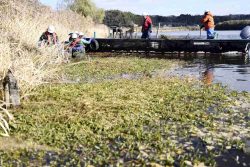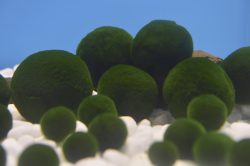
Saury, called sanma in Japanese, are traded at high prices, due to recent poor catches, in the Toyosu wholesale market in Koto Ward, Tokyo, on Sept. 1, 2020.
19:20 JST, February 18, 2021
The saury industry has been reeling from a spate of poor catches in recent years, and marine heatwaves might be the problem, a joint research team from Hokkaido University and the Japan Agency for Marine-Earth Science and Technology has announced.
Saury, commonly known as sanma in Japanese, is a species of fish that prefers to dwell in relatively cold sea water. However, when the team analyzed ocean temperature data for the ocean area off the southern coast of Hokkaido, they found that marine heatwaves occurred each summer from 2010 to 2016.
Similar to heatwaves on land, marine heatwaves are sustained periods of abnormally warm seawater temperatures. Specifically, the phenomenon is defined as high-temperature events, greater than the 90th percentile for the area, that continue for at least five consecutive days.
Over the past 100 years, marine heatwaves have been occurring with dramatically increasing frequency, prompting concern over the phenomenon’s ramifications for the marine ecosystem.
As elevated sea temperatures have again been recorded off Hokkaido since 2019, the researchers said they feared the condition may become permanent.
The team analyzed observation data from satellites to determine the mean sea surface temperature for the region.
Over the summer months from July to September between 2010 and 2016, the average temperature was about 1.5 C higher than in the same three-month period from 1993 to 2009, a margin that constituted a heatwave.
The heatwave was precipitated by a warm eddy that spread to obstruct the Oyashio current, which typically brings cold water from the northeast of Hokkaido to the south. The team assumes that the eddy itself was formed when part of the warm Kuroshio current, which usually follows the southern shores of the Japanese archipelago and flows toward the east, flowed into the sea area instead.
Prof. Shoshiro Minobe of Hokkaido University, a climatology expert who participated in the project, said: “Perennial marine heatwaves are unprecedented. It is possible that oceanic and atmospheric circulation patterns have changed as a result of global warming.”
Saury are migratory fish and can be found across a large swath of the northern Pacific Ocean. Around Japan, schools of the fish gradually move to the south, from the sea off Hokkaido to the waters off Chiba Prefecture, from August to around December.
According to the Agriculture, Forestry and Fisheries Ministry and other sources, the saury catch has been poor since the start of the 2010s.
In 2019, the nationwide saury catch dropped to 45,778 tons, down approximately 60% from the previous year. By prefecture, Hokkaido’s catch was the largest at 19,085 tons, followed by Iwate Prefecture’s 6,033 tons and Miyagi Prefecture’s 5,973 tons.
Meanwhile, Hokkaido’s catch of Japanese amberjack, a species that resides in warm sea currents, has been rising rapidly. A total of 10,873 tons of amberjack were caught in the prefecture in 2019, nearly 16 times more than in 2004.
The situation underscores how the tides of change have been swirling around northern Japan’s fisheries in recent years.
Shusaku Sugimoto, an associate professor of physical oceanography at Tohoku University, said: “Marine heatwaves are an important phenomenon, not only in terms of marine resources, but also from the perspective of natural disasters. Elucidating how they work is an urgent, pressing task.”
Top Articles in Science & Nature
-

Japan Institute to Use Domestic Commercial Optical Lattice Clock to Set Japan Standard Time
-

Japan to Face Shortfall of 3.39 Million Workers in AI, Robotics in 2040; Clerical Workers Seen to Be in Surplus
-

Record 700 Startups to Gather at SusHi Tech Tokyo in April; Event Will Center on Themes Like Artificial Intelligence and Robotics
-

iPS Treatments Pass Key Milestone, but Broader Applications Far from Guaranteed
-

iPS Cell Products for Parkinson’s, Heart Disease OK’d for Commercialization by Japan Health Ministry Panel
JN ACCESS RANKING
-

Japan PM Takaichi’s Cabinet Resigns en Masse
-

Japan Institute to Use Domestic Commercial Optical Lattice Clock to Set Japan Standard Time
-

Israeli Ambassador to Japan Speaks about Japan’s Role in the Reconstruction of Gaza
-

Man Infected with Measles Reportedly Dined at Restaurant in Tokyo Station
-

Videos Plagiarized, Reposted with False Subtitles Claiming ‘Ryukyu Belongs to China’; Anti-China False Information Also Posted in Japan























